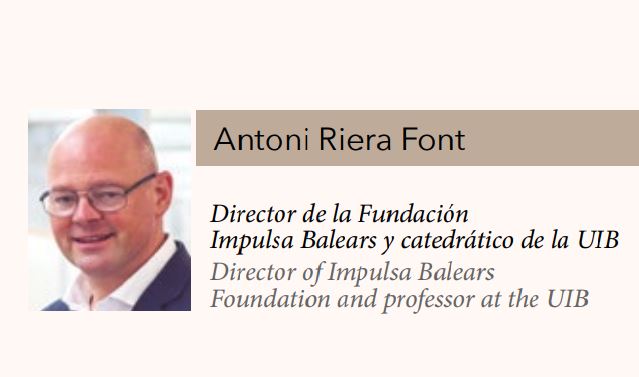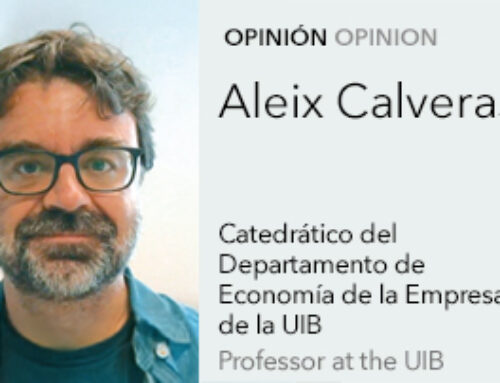 The socio-economic impact of the pandemic and the risks and opportunities emanating from megatrends such as technological disruption, climate change and sustainability, global demographic change and concerns about health and well-being, among others, are stimulating reflection in many regions of the world about their future development pathways.
The socio-economic impact of the pandemic and the risks and opportunities emanating from megatrends such as technological disruption, climate change and sustainability, global demographic change and concerns about health and well-being, among others, are stimulating reflection in many regions of the world about their future development pathways.
In this quest to ‘conjugate in future’, productivity is, in current international paradigms, the cornerstone of the dual capacity that all regions are obliged to train: that of being attractive externally – creating goods and services that meet the demands of international markets – and prosperous internally – improving the quality of life of the local population -.
In order to achieve this dual objective in the Balearic Islands, it is first of all necessary to recognise the competitive strengths and weaknesses of the islands, which, according to the latest IMPULSA BALEARS measurement, are in 153rd position out of 234 regions in the EU-27. A ‘low’ competitive position, in which some strengths stand out, such as the pillars referring to ‘health’ (position 8), ‘infrastructures’ (position 35), ‘basic education’ (position 83), and ‘technological preparation’ (position 46).
However, the archipelago’s main weaknesses remain, as it maintains its positions in the ‘low’ or ‘very low’ competitiveness brackets in many of the key driving forces of efficiency and innovation, comsuch as ‘business sophistication’ (position 151), ‘labour market efficiency’ (position 185) and ‘higher education’ (position 194).
This triad of pillars is key to boosting productivity in the islands, the key to higher levels of competitiveness at present, and which explains, in any case, the stress on essential aspects of social sustainability (position 164), such as the employed population with only basic education (position 220), income equality (position 177), the incidence of vulnerable employment (position 174), youth unemployment (position 17) or equal opportunities (position 125).
All in all, the latest movements on the European chessboard allow us to extract some clues as to how to ‘conjugate in future’ in the Balearic Islands:
Aquí tienes el texto sin saltos de línea innecesarios:
1 – The most competitive European regions maintain a balanced performance of the pillars that support their position. The Balearic Islands, on the other hand, show a notable dispersion of its competitive scores, as they are among the 125 regions with the greatest imbalance, more than doubling the European average in this respect. This is the first ingredient in the recipe: to make even progress in the different pillars that explain the archipelago’s current position.
2 – There is a majority and generalised competitive commitment among European regions to efficiency driving forces. 3 out of 4 regions that have improved their position in the global competitiveness ranking have moved up in the distribution that scores their performance in the efficiency driving forces. And, more particularly, 2 out of 3 of these regions have done so by making progress in the ‘higher education’ pillar. Here is the second ingredient of the recipe: bringing the school dropout rate to the European average (9.6%) would improve the overall ranking by 11 positions and leave the islands on the doorstep of the ‘average’ competitiveness bracket.
3 – The leading regions in innovation driving forces accelerate and push the competitiveness frontier, especially in ‘technological readiness’ and ‘innovative capacity’. And this can be seen from the Balearic Islands, because despite the fact that the Balearic Islands has climbed positions (from 76th to 46th) in ‘technological readiness’, the distance from the frontier still shows that we have covered 62.1% of the arc of scores led by the Dutch region of Utrecht. Here, then, is the third ingredient in the recipe: move faster than those who move the line.
Nevertheless, the main message of these three clues is that the real ambition is not in the objectives, it is in the approach. ‘Conjugating in future’ requires a change of ‘competitive chip’, in other words, a change of verb: relax the verb ‘to accumulate’ and focus on the verb ‘to take advantage’.








Leave A Comment